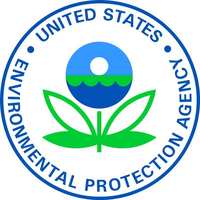EPA plan to regulate greenhouse gases gets criticism, cheers in Texas
December 8, 2009
WASHINGTON – The Environmental Protection Agency said Monday that greenhouse gases spewed by power plants, oil refineries and vehicles constitute a public health threat, a verdict that positions the government to set new limits on global-warming emissions.
Written by DAVE MICHAELS , Dallas Morning News

WASHINGTON – The Environmental Protection Agency said Monday that greenhouse gases spewed by power plants, oil refineries and vehicles constitute a public health threat, a verdict that positions the government to set new limits on global-warming emissions.
Such rules would have a significant effect on Texas, which emits more heat-trapping gases than any other state.
The "endangerment finding" allows the EPA to pursue limits on carbon dioxide emissions from automobiles and to require power plants and manufacturers to install technology that reduces such emissions.
"This long-overdue finding cements 2009's place in history as the year when the United States government began seriously addressing the challenge of greenhouse gas pollution and seizing the opportunity of clean-energy reform," EPA Administrator Lisa Jackson said Monday.
The EPA says limits on carbon dioxide and other heat-trapping gases would benefit Texans, who suffer the health effects of increased pollution and more severe storms caused by global warming.
But many of the state's oil and gas producers, as well as its Republican political leaders, say regulations would cripple the fossil fuel sector and penalize Texans who depend on gasoline, natural gas and other fossil fuels for transportation, heating and cooling.
Gov. Rick Perry filed a 38-page rebuttal of the EPA's proposal and said the ruling continues a pattern of "aggressive federal encroachment into every farm, business, church and household in America." The EPA and other researchers, however, have said greenhouse gas rules would exempt small businesses.
In a letter to Jackson in June, Perry assailed her proposal as "senseless regulation." The chairman of the Texas Commission on Environmental Quality, a Perry appointee, said the finding sets the stage for "extreme economic hardships" throughout Texas.
"It is unconscionable that unelected bureaucrats at the EPA have declared carbon dioxide a public danger despite a lack of scientific evidence to support their ruling," Perry said.
Jackson, most Democrats and many large businesses say there is ample scientific evidence that global warming is caused by man-made emissions.
But U.S. Rep. Joe Barton, R-Arlington, and other congressional Republicans had asked that Jackson abandon her finding in light of e-mails from climate researchers that questioned the scientific foundation of global-warming theories. The e-mails were found by a computer hacker who got them from a server at the University of East Anglia in Norwich, England.
"Today's EPA action mimics the e-mails in one respect – it demonstrates that public relations priorities rather than straightforward science are driving U.S. policymaking on global warming," Barton said.
Jackson said there was nothing in the e-mails "that undermines the science upon which this decision is based."
The EPA is moving forward with regulations as Congress wrestles with legislation that would impose economy-wide limits on greenhouse gas emissions. Jackson said Monday that she would prefer legislation over rules, partly because a climate-change law could not be undone by a future president.
The House passed such a bill in June, which sought to reduce carbon emissions to 83 percent below 2005 levels by 2050. But Senate Democrats have struggled to find the votes to pass their measure, while climate legislation has taken a back seat to the health care bill.
Environmental groups say the EPA's finding improves the chances that the U.S. and major polluters such as China will endorse new limits on greenhouse gas emissions at a conference in Copenhagen, which began Monday.
"This gives other countries another clear signal that the U.S. is very serious and reliable ... and ready to move under the existing Clean Air Act," said David Doniger, climate policy director of the National Resources Defense Council.
The EPA can also now move toward limiting carbon emissions from automobiles, power plants and factories. The agency says it plans to complete a rule in the spring that would require a 40 percent increase in the fuel efficiency of cars and light-duty trucks.
Separately, the EPA has proposed that power plants and factories that emit over 25,000 metric tons of carbon-dioxide equivalent gases per year install what is called the "best available control technology" to limit emissions.
A study by Duke University found that large power plants, oil refineries, lime manufacturers and most paper mills would have to comply with the proposed rule. But farms, commercial buildings and most hospitals would fall outside its scope.
"What we've done is primarily deregulatory," Jackson said. "It's given assurances to small businesses and medium businesses that they would not be regulated, while giving a clear signal to larger emitters ... that regulations can come under the Clean Air Act."
![]()
![]()
Related Stories
![]()
Fair Use Notice
This site contains copyrighted material the use of which has not always been specifically authorized by the copyright owner. We are making such material available in our efforts to advance understanding of environmental, political, human rights, economic, democracy, scientific, and social justice issues, etc. We believe this constitutes a "fair use" of any such copyrighted material as provided for in section 107 of the US Copyright Law. In accordance with Title 17 U.S.C. Section 107, the material on this site is distributed without profit to those who have expressed a prior interest in receiving the included information for research and educational purposes. For more information go to: http://www.law.cornell.edu/uscode/17/107.shtml. If you wish to use copyrighted material from this site for purposes of your own that go beyond "fair use", you must obtain permission from the copyright owner.